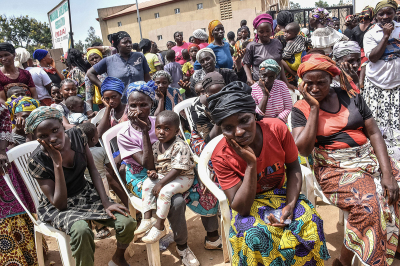Does God love the rich more than the poor?

Does God love the rich more than the poor?
I’ve been prompted to ask this question because far too many people answer in the affirmative. Some are even of the opinion that poor Christians are cursed. Some have also used poverty and riches as a parameter to measure God’s love in the lives of believers. Many poor Christians even grumble that God has not given them riches and have left the faith altogether.
The emphasis on riches by some of today's preachers has seriously promoted the idea that the rich are the favorite of God, and the poor are not. American prosperity gospel preacher Jesse Duplantis has recently said, “You know that ‘poverty is a blessing?’ That's a lie. Poverty is a curse. It's not in Heaven, none whatsoever.”
The Lord Jesus strongly disagrees with Duplantis’ sentiment:
“And he lifted up his eyes on his disciples, and said, blessed be ye poor: for yours is the kingdom of God. Blessed are ye that hunger now: for ye shall be filled. Blessed are ye that weep now: for ye shall laugh … But woe to you who are rich, for you have already received your comfort. Woe to you who are well fed now, for you will go hungry. Woe to you who laugh now, for you will mourn and weep” (Luke 6: 20-21, 24-25). My point is not to say that the poor are blessed while the rich are cursed, but to underscore Jesus' position on worldly comfort.
Worldly wealth and riches should not be the yardsticks to measure God's love because God loves all equally irrespective of social status. “For God so loved the world, that he gave his only begotten Son, that whosoever believeth in him should not perish, but have everlasting life” (John 3:16). The love of God is universal. Our responsibility is just to reciprocate this love by believing in Him. He continues to love us not minding how poor or rich we are. His priority is our soul not our comfort here on earth.
I know the difference between living in lack and living in abundance, but I have come to understand that these are never factors in determining the love of Christ for me. I have preached the Gospel in abject poverty, and sometimes the responses I received were disheartening. On one occasion, a woman boldly looked at my face and said to me, “If this God whom you preach is what made you poor, I will not come to Him.” I was wearing a worn-out shirt and a pair of shoes with holes.
On another occasion, I helped build three houses for poor widows. The women in the communities praised God and thanked us profusely. Many came to Christ through these interventions. Does it mean that God loved me less when I was preaching in poverty and loved me more when I had resources to carry out some projects? The answer is no. He loves me all the time, in lack and in abundance.
Jesus loves both the poor and the rich equally. My being poor can make me less honorable in the sight of men, but not in the sight of God, and my being rich can make me more honorable in the sight of men but not in the sight of God. What determines how honorable I am in the sight of God is my walk with Him. Every believer must find rest and comfort in God’s love and avoid measuring God’s love with financial blessings.
Oscar Amaechina is the president of Afri-Mission and Evangelism Network, Abuja, Nigeria. His calling is to take the gospel to where no one has neither preached nor heard about Jesus. He is the author of the book Mystery Of The Cross Revealed.





















